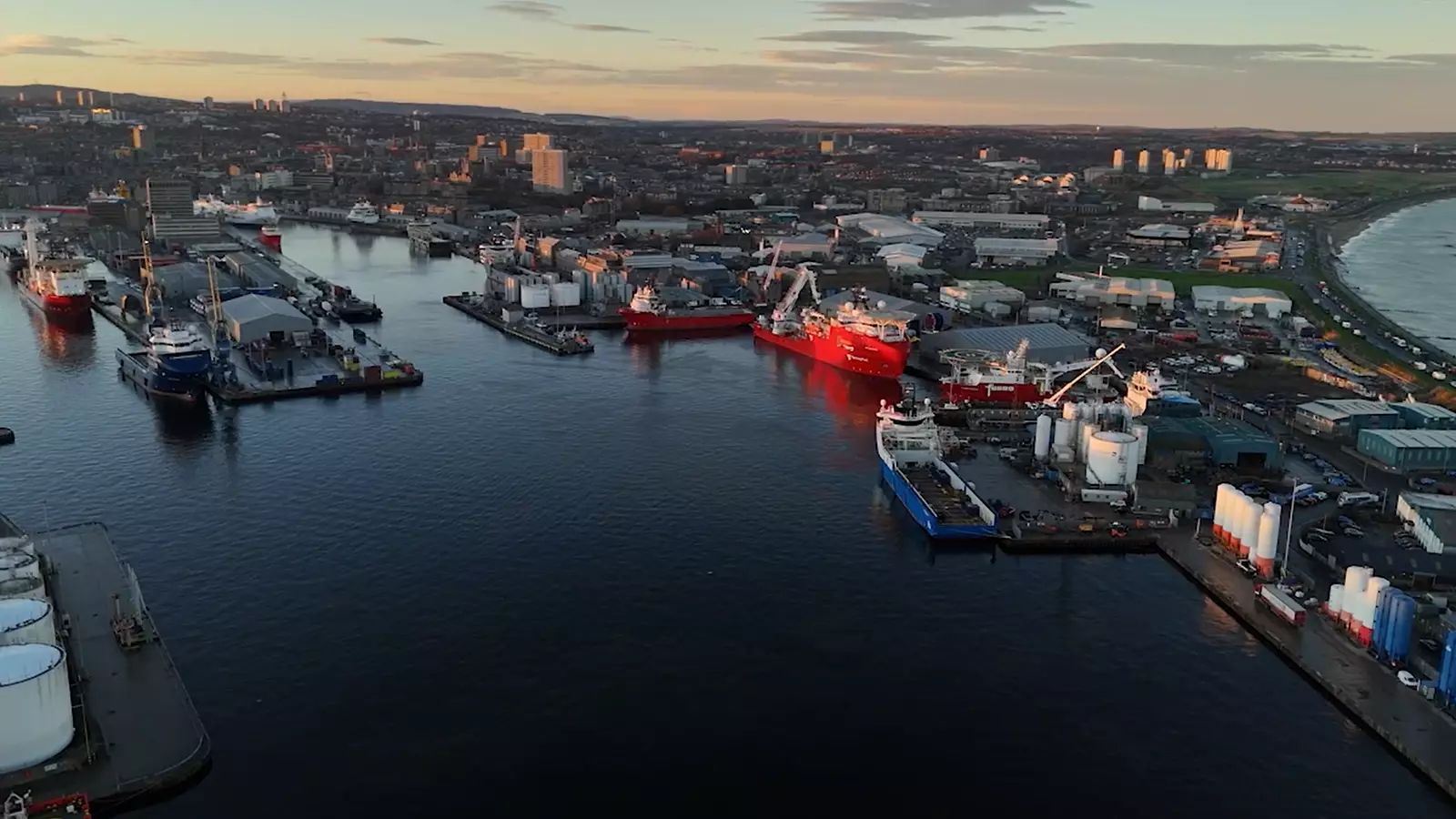In a landscape where energy independence and sustainability have become central to political discourse, the announcement regarding GB Energy, a new state-owned enterprise in the UK, has generated significant interest and skepticism. Sir Keir Starmer’s promise to establish 1,000 jobs in Aberdeen as a part of Labour’s green initiative has been met with both hope and apprehension. The complexities of transforming the energy sector while aiming to alleviate consumer energy bills pose a daunting challenge. Juergen Maier, the newly appointed chairman of GB Energy, recently suggested that the fulfillment of this ambition could take up to 20 years, raising questions about both the feasibility and immediacy of these pledges.
At the heart of Labour’s proposal lies the ambition to cut consumer energy costs by up to £300, a goal that resonates strongly with families grappling with rising bills. However, this bold initiative has hit a bump with Maier emphasizing a vision that stretches into the long term. “I know that you are asking me for a date,” he stated during his interview, hinting at the lack of concrete timelines and the slow-paced nature of transformational projects in the energy sector. This lack of specificity can breed disillusionment among the very communities that the initiative aims to support, especially in a region like Aberdeen, which has heavily relied on the oil and gas industry.
Aberdeen’s local economy is intricately tied to the fortunes of the oil and gas sector, employing around 50,000 individuals. With the transition to renewable energy, there is palpable anxiety in the air. Russell Borthwick, chief executive of the Aberdeen and Grampian Chamber of Commerce, underscored this sentiment, commenting on the urgent need for “quick wins.” The community’s nerves reflect not only the uncertainty of job security but also the anxiety that the green transition may not happen swiftly enough to catch those who could be left behind. The necessity for immediate, tangible results is paramount, given the looming crisis in the North Sea sector.
While GB Energy envisions potentially broader job creation in the long run, the current outlook projects the establishment of merely 200 to 300 jobs in the immediate future. Although Maier acknowledged that the long-term aspiration could exceed the 1,000-job target, for many this appears overly cautious and potentially underwhelming. With a looming crisis in the North Sea, emphasizing a gradual approach might come off as a lack of urgency particularly when unions are expressing concerns of over-promising. Representatives from various labor unions have voiced their worries about the risk of GB Energy not living up to its promises, raising questions about its operational commitment and pace.
The ambitious nature of Labour’s green initiative not only affects local job markets but also bears significant political ramifications. Unions have pointed out the risk involved in making promises that might not materialize as intended, arguing that any significant shortfall could lead to disappointment and disillusionment among constituents. Derek Thomson, the Scottish Secretary for Unite, cautioned that failure to act on this vision could lead to devastating economic consequences for the northeast region. Richard Hardy from Prospect echoed similar sentiments, advocating for a decisive plan of action rather than vague promises.
For GB Energy to gain credibility and for the broader political initiative to gain traction, a defined action plan is necessary. Rather than relying solely on aspirations, the transition must be rooted in practical measures, clear timelines, and visible progress in the near future. Stakeholders, ranging from governmental bodies to private investors, must be engaged in the dialogue about renewable energy investments. The vision for renewable energy must not only invigorate the existing workforce but also attract new talent in innovative sectors—a task that requires collaboration across multiple fronts.
The establishment of GB Energy heralds a forward-looking imperative in the energy sector, but it also serves as a reminder of the complexities and uncertainties that lie ahead. As the journey toward a sustainable energy landscape begins, the focus must remain on balancing ambition with deliverable actions to ensure that promises translate into reality and do not result in political fallout or economic hardships for the people of Aberdeen and beyond.


Leave a Reply